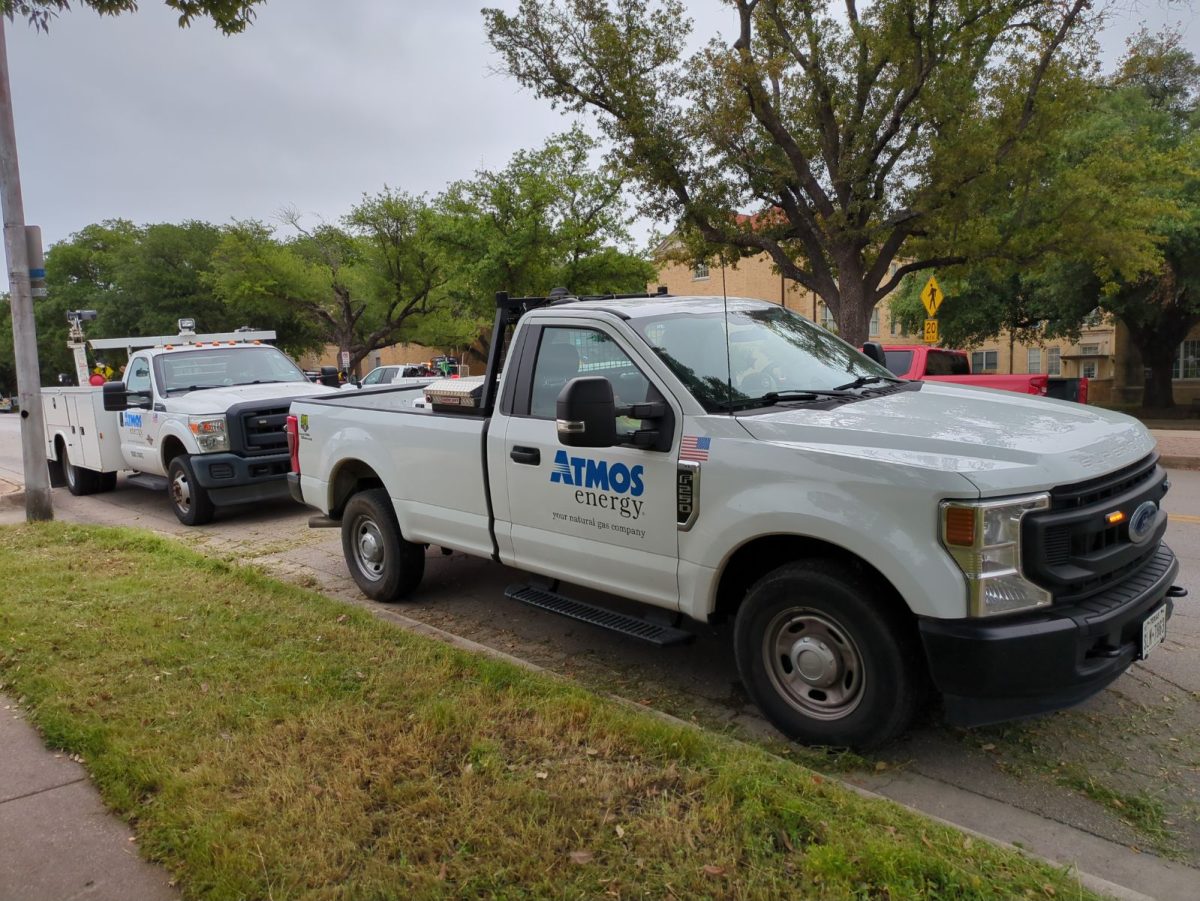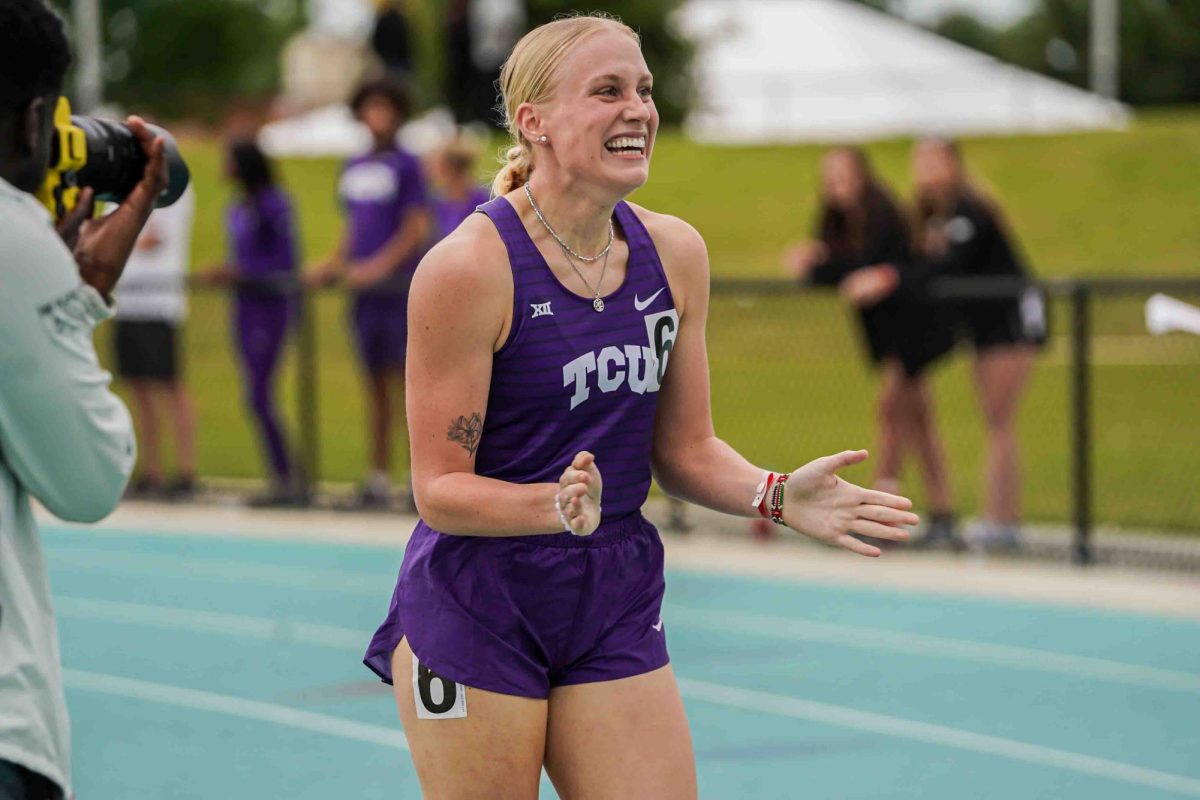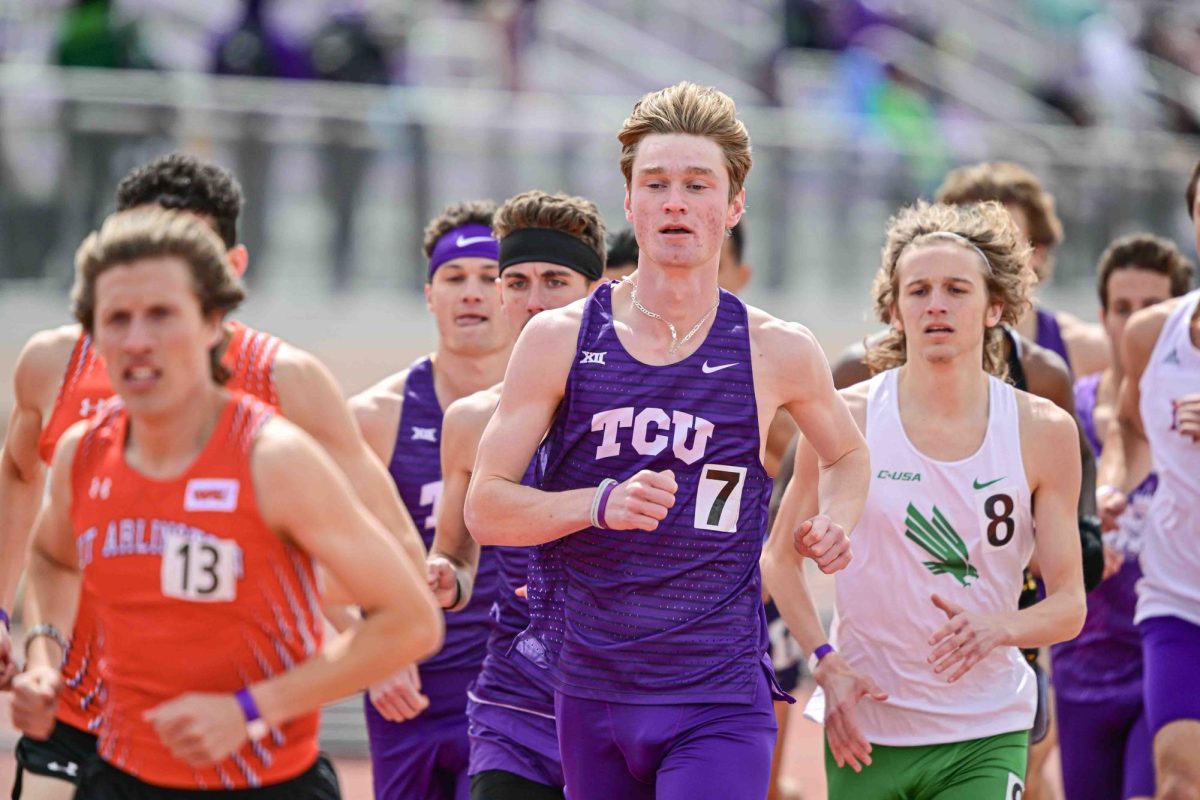“The dream,” as sprinter Sam Watts calls the 2012 Summer Olympics, was about to come true.
His training was going well. He was nominated to carry the Olympic torch through his hometown. Not to mention the games would all take place in London, where he had grown up his whole life.
But Watts would never get to run in London 2012. Instead, he would miss weeks of training due to an ankle injury. He would get healthy enough to make it to the Olympic trials, only for “the dream” to be cut short at the semifinals. He managed to clock in at 21.2 seconds, but it wasn’t enough to make the Olympic team.
Watts said he was heartbroken.
“I just felt like this was slipping away from me,” he said. “This is what I wanted to be my whole life. This is not the way it was supposed to happen.”
And yet, Watts said the experience made him realize that he needed to make a change—a change that meant traveling thousands of miles across the sea to a university in Fort Worth, Texas, called TCU.
A year after the 2012 Olympics, Watts became a full-fledged Horned Frog, living and training in America. By his junior year, he would establish himself as one of TCU’s top sprinters, finishing his indoor season with First Team All-America honors in the 200-meter dash. In January, Watts ran a 20.69 in the event, the world’s fastest mark at the time.
For Watts, 2015 has been a breakout year, he said.
“Every time I step on the track, I run faster than I ran last year,” Watts said. “It’s definitely been a breakthrough physically and mentally.”
Different accents
Prior to coming to TCU, Watts said he hadn’t spent a lot of time in America. The only time he remembers being in America was when his family took a trip to Florida to swim with dolphins when he was about 10 years old.
Watts found out about TCU through one of his friends, long jumper Lorraine Ugen, who had already been training there. Ugen, who would later win two NCAA Championships in the long jump in 2013 and 2014, advised Watts to come to TCU.
“She almost sold it to me with the coaching staff and the athletes they have here,” Watts said. “She was really my foot in the door, but I’m so glad I made this choice, obviously.”
When his mother, Pam Walker, learned that he was planning on moving to America, she said her response was “tearful.”
“It was a fantastic opportunity, and I saw that side of it,” she said. “I was torn because, half of me—the mum side of me—there’s one respect that you actually don’t want him to go because obviously I’ll miss him.”
Like any mother, she had reason to worry. Watts had always lived at home and hadn’t been outside of England, other than for vacation.
When Watts arrived at TCU, he said his first day was “confusing.”
Without a cell phone, he had to navigate through campus, as his British accent was met with strange looks from the people around him.
“I still spoke a lot of English slang,” he said. “I slowed down how I speak, and I adjust how I speak to Americans now, because I feel like if I speak in my normal kind of voice, they don’t understand me. I had a lot of people just look at me very weird.”
But Americans had their own set of strange colloquialisms, too. Phrases like “on the fly,” or the proverbial Texan contraction “y’all,” were new terms Watts had to get used to.
“The way of speaking, some things really make me laugh,” he said.
He also discovered two of the university’s biggest sports, American football and baseball, which he knew absolutely nothing about.
Other than the way of speaking, Watts said the culture in America was not too different from England, but the moment he truly started feeling at home was when he got on the track.
And when his mother came to visit for his 21st birthday, she said her worries were put to rest.
“Once I got there, I saw the amazing facilities, I met Coach [Darryl] Anderson and I was reassured that he had done the right thing,” she said.
Back on track
With “the dream” of London 2012 behind him, Watts is now focused on a new dream: Rio 2016.
On the way, Watts has celebrated multiple first-place finishes at TCU, which included running the fastest 200-meter time in the world in January. He later helped his 4×400 relay team to another win at the Arkansas Open, posting a time of 3:06.05—the third-fastest time in school history.
He said he looks up to professional sprinter Usain Bolt, who currently holds the world record in the 200 with a time of 19.19 seconds.
Watts’s 20.69 seems like only 1.5 seconds away, but Watts said cutting down that time is harder than it looks. Even just a fraction of a second is crucial.
“Someone can be a long way in front of you, and it’s just a tenth of a second,” Watts said. “It’s very small.”
Still, Watts said he has experienced much improvement at TCU—not just as a runner, but as a person.
“When I came from England, I was the most shy person,” he said. “I couldn’t speak to people, but I feel like I’ve really changed.”
Walker said her son has matured, and although he might not be at the level where he wants to be yet, he has reaped the benefits of staying on the track.
“When he hit a certain level, we thought maybe he won’t want to do it anymore because all of a sudden you’re meeting other people and you’re not winning all the time because you’re now competing with the best,” she said. “But he didn’t. He stuck with it, and he’s having a great life based on the fact that he has stuck with it.”
And even if he doesn’t make it into the 2016 Olympics, or the Olympics after that, Watts said he’s going to keep trying until the gold is around his neck—even if it means running in circles to get there.
“I want to be an Olympian,” he said. “I want to win a gold medal at the Olympics. That’s all there is to it.”






